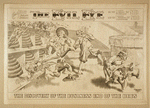"A few days ago you and your mother came home with flowers...You had honeysuckle, and you showed me how to suck the nectar out of the blossoms. You would bite the little tip off a flower and then hand it to me, and I pretended I didn't know how to go about it, and I would put the whole flower in my mouth, and pretend to chew it and swallow it, or I'd act as if it were a little whistle and try to blow through it, and you'd laugh and laugh and say, ""No! no! no!! And then I pretended I had a bee buzzing around in my mouth, and you said, "No, you don't, there wasn't any bee!" and I grabbed you around the shoulders and blew into your ear and you jumped up as though you thought maybe there was a bee after all, and you laughed, and then you got serious and you said, "I want you to do this." And then you put your hand on my cheek and touched the flower to my lips, so gently and carefully, and said, "Now sip." You said, "You have to take your medicine." So I did, and it tasted exactly like honeysuckle, just the way it did when I was your age and it seemed to grow on every fence post and porch railing in creation."
--Marilynne Robinson, Gilead (2004)
I knew that if I searched long and hard enough, that I would locate a quote devoted to explaining how to extract the "honey" from honeysuckle. I was surprised, however, to locate one that also documents the bittersweetness of advanced parenthood and the recognition of one's own mortality. In this quote, a man in his seventies whose health is failing is reintroduced to the succulence of honeysuckle by his very young son. The poignancy of this scene and the intense feeling of longing that it evokes is dependent on the juxtaposition of "medicine" and nectar, spring blossoms and the late of autumn of life. But it is also clear that the nostalgic practice of honeysuckle sipping--which is both familiar to the speaker and yet also made new through the experience of rediscovering it with his son-- is a secular ritual. In this simple pleasure, we discern a gesture towards historical continuity.
Subscribe to:
Post Comments (Atom)






No comments:
Post a Comment